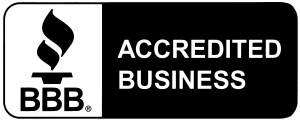
Facing Foreclosure? Learn About Common Options
If you are facing foreclosure, the situation can feel stressful and uncertain. Homeowners in financial hardship may have several options available depending on their loan type, lender policies, and individual circumstances.
Mortgage Help Services provides general educational information and access to mortgage assistance resources to help homeowners better understand potential options. Outcomes vary and are not guaranteed.
Below are common mortgage-related options homeowners may review when facing foreclosure.
1. Loan Modification (Information Overview)
A loan modification involves requesting changes to the terms of an existing mortgage to improve affordability. Potential changes may include adjustments to interest rates, loan terms, or payment structures. Availability and approval depend entirely on lender guidelines and borrower eligibility.
Mortgage Help Services provides educational information about the loan modification process and may refer homeowners to independent providers who can discuss options with lenders.
2. Home Equity–Based Options
Homeowners with significant equity may explore options that involve borrowing against available equity to address past-due mortgage payments. These options depend on property value, loan balances, credit factors, and lender requirements.
Mortgage Help Services provides general information to help homeowners understand whether equity-based options may be worth exploring.
3. Selling the Property
In some situations, selling the property may be an option to avoid foreclosure proceedings. This may allow a homeowner to pay off the mortgage balance and avoid the long-term credit impact associated with foreclosure.
Mortgage Help Services provides educational information to help homeowners consider whether selling the property may be appropriate based on market conditions and personal circumstances.
4. Government and Lender Assistance Programs (Informational)
Certain government-backed or lender-specific programs may be available to homeowners experiencing financial hardship. Program availability, eligibility requirements, and outcomes vary and are subject to change.
Mortgage Help Services is not affiliated with the government and does not administer government programs. Information provided is for educational purposes only.
5. Forbearance Agreements
Forbearance agreements may allow for temporary payment reduction or suspension in cases of short-term financial hardship. Forbearance does not eliminate missed payments, and repayment terms vary by lender.
Mortgage Help Services provides general information to help homeowners understand how forbearance agreements work.
6. Deed in Lieu of Foreclosure
A deed in lieu of foreclosure involves voluntarily transferring ownership of a property back to the lender to avoid formal foreclosure proceedings. This option is subject to lender approval and specific conditions.
Mortgage Help Services provides educational information about this option so homeowners can better understand potential implications.
7. Short Sale
A short sale may occur when a lender agrees to accept less than the full mortgage balance upon sale of the property. Approval is not guaranteed and depends on lender policies and market conditions.
Mortgage Help Services provides general information regarding short sales and related considerations.
8. Bankruptcy (General Information)
Bankruptcy may affect foreclosure proceedings under certain circumstances. Bankruptcy laws are complex and vary by situation.
Mortgage Help Services does not provide legal advice or legal representation. Homeowners considering bankruptcy should consult a qualified attorney.
Learn More About Available Resources
If you are experiencing difficulty keeping up with mortgage payments, reviewing available mortgage assistance information may help clarify potential options and next steps.
Mortgage Help Services provides general educational information and may connect homeowners with independent mortgage assistance providers or other professionals, where appropriate. Submission of information does not guarantee any loan modification, foreclosure prevention, or specific outcome.
Additional Resources
- In Foreclosure? Here are your options
- Common Mistakes Homeowners Make When Facing Foreclosure and How to Avoid Them
- Forbearance vs. Loan Modification: Which is Right for You?
- Steps to Avoid Foreclosure: Options for Homeowners in Financial Trouble
- Understanding Loan Modifications: How They Work and How They Can Help You


Contact Information
The Leads Network LLC,
DBA Mortgage Help Center
3615 Main Street
Riverside, CA 92501

